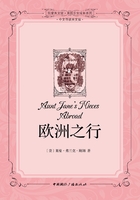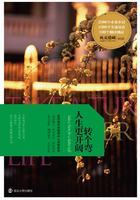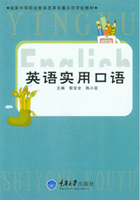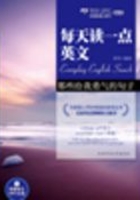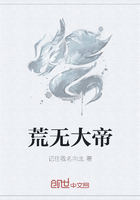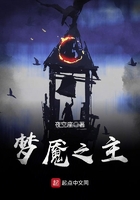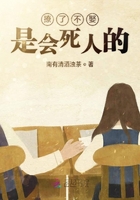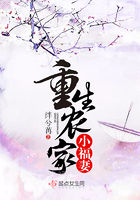He wore a pair of sunglasses and held a bamboo pole. I didn't recognize him. I had seen a lot of soldiers in Tibet, and I could not remember all of them with any clarity. I asked the comrade next to me which squadron this soldier belonged, and why he wore sunglasses-how slovenly! The comrade told me that he was called Pan Xuelong, and that an explosion on a construction site had damaged his eyes; he had gone blind. I was stunned, and said nothing more for a long time. After years of not seeing him, that young soldier had turned into this. Suddenly I felt sick, and wanted to go over and shake his hand and say something to him. I even felt compelled to give him a hug. But my feet felt rooted to the floor and I could not move. What would I say? I didn't want to disturb him, and I didn't want to reveal to myself the extent of his wounds. I watched him silently as he left my field of vision. His bamboo pole clacked on the floor, clacked me to tears and tore up my heart. Darkness would be his companion for a lifetime. He was only twenty! On the long path of life before him, that bamboo pole would serve as his eyes. I did not see him after that. He, along with many other comrades, left the plateau with a body full of pain and disability. He returned with the others to their separate places of origin, where they were born and raised. A man's life is delicate, indeed, on the Sichuan-Tibet Highway.
Twelve years before, the detachment had been stationed in the southernmost camphorwood of the Sichuan-Tibet Highway ensuring that the "Three Hundred Meter Line of Death" remained open. One day, the platoon leader took three vehicles to transport sand and stones to the construction site. The winding mountain road was bumpy and spanned thirty kilometers. The drop in eleva-tion above sea level was over a thousand meters, and the road was very narrow. Many of the places they passed could only fit one vehicle. Therefore when the vehicles travelled on the road they had to sound the horn frequently to stop vehicles coming ahead. When two vehicles came together there was no way to maneuver around. When they heard the sound of a horn, the incoming vehicle had to find a wider space and wait for the other vehicle to pass. The fog was thick in the mountain valley and visibility was limited to five meters. The platoon leader was worried about the danger of the road and took the leading vehicle himself. He let the squad leader Su Jihao take the middle vehicle, and he let another vehicle follow behind. Two soldiers accompanied Su Jihao in his vehicle.
As it happened, it was Su Jihao's nineteenth birthday that day. On the way they suddenly encountered a rainstorm. When they returned to the squadron, the squadron leader found that Su Jihao's vehicle had disappeared. The vehicle in front of his had returned, as had the one behind him. Su Jihao's was the only vehicle that could not be found. On such a narrow road, where could it have gone? Did it fly away? The squadron leader was very worried, and hurriedly ordered the soldiers to comb the grasslands looking for it. They searched all the way to the food station and saw no sign of Su Jihao's vehicle. They went a second time to look for him. They searched very carefully this time. When they came to a precipice they found a slashed tyre by the side of the road. The squadron leader wrapped a rope around the tyre and wrapped the other end around his waist, and then descended the precipice to look for the vehicle. He lowered himself halfway, and then saw a bloodstain on a rock. His head was buzzing, such that he almost fell clean off.
The fragments of the vehicle were scattered along the side of the river in the bottom of the valley. The squadron leader found the bodies of two soldiers alongside. He never found the body of Su Jihao. The comrades gave Su Jihao a tomb containing his personal affects in the cemetery for martyrs. Afterwards, a military poet visited the cemetery and heard this tragic tale. He stood in front of Su Jihao's tomb and wrote this poem:
You constructed roads so that others could reach distant
lands and come home,
although you sleep beneath faraway Tibet,
Leaving not a trace of yourself behind.
Does this road belong to you,
Or do you belong to the road?
The Final Scene
This happened over ten years ago. The political instructor Li Jingwen told me that the squadron leader on probation, Li Weifang, was very brave. He allowed me to film him. Li Weifang had already received his orders to become a cadre. He waited until he came down from the construction site to announce it. But there were five or six soldiers operating a pneumatic drill there, their faces streaked with dirt, and I could not make out which was Li Weifang.
Political Instructor Li motioned to a tall man standing out in front and identified him as Li Weifang. He had already led three squads out that day, and had not stopped to eat lunch. I looked at my watch and saw that it was past four o'clock. I asked Mr Li why Li Weifang had not been swapped out. Instructor Li told me that they had tried several times, but he had not come down, and had instead protested that the wind today was particularly strong; if he wasn't there to keep an eye on things, he explained, he thought the soldiers would get into trouble.
The wind and grit that day certainly were great. If you closed your lips the sand could still get into your mouth. Moreover, pieces of rock and sandy soil continued to fall down from the stone promontory of the cliff. Just after he had climbed up, Li Jingwen gave me a safety helmet. I had no sooner put it on than a rock as big as my fist tumbled down and exploded on my head, making my forehead shake. I was so unsettled that I remained discom-posed for a long time after. If it had not been for the safety helmet, that rock would have taken me to another place entirely. I angled the camera on Li Weifang and his comrades. I could not make out their faces clearly through the lens; I could only see a pairs of dark, shining eyes.
The wind and sand grew greater and greater, and I feared that my video camera would be damaged. The political instructor kept urging me to get out. Before I had walked a hundred meters I suddenly heard a great noise of crashing and falling behind me. I turned my head to look, and saw smoke rising in all direc-tions from the "Tiger's Mouth". I was petrified of a landslide. I turned and ran in panic onto the mountain. When I had reached halfway on the route I ran into the political instructor and several soldiers, who were hurrying down in the opposite direction. The instructor was carrying a soldier on his back whose head hung down. I couldn't see his face, but only saw blood spilling out in big gulps from his mouth. The blood had already soaked through half of the instructor's cotton jacket. I asked him who it was, and the instructor, his face ashen, said breathlessly:"It's Li Weifang." I collapsed, numbed, on the ground.
When darkness came Li Weifang was taken to the county hospital thirty kilometers away. Conditions in the hospital were poor; there was no electricity, and several soldiers had to hold candles in the emergency room to give light to the doctor. They gave no thought to the boiling hot candle oil that spilled onto their hands, apart from one new recruit who cried. That afternoon the squadron commander had just swapped out with him and had met with an accident. He said in tears that the commander had only suffered his accident trying to protect him. A volunteer doctor from Jiangsu nervously tried to save Li Weifang. I saw that blood was pouring continuously from multiple places on Li Weifang's body, flowing onto the bed and soaking through the coverlet. In the end the blood dripped, drop by drop onto the earth that had not yet thawed. I did not understand how his body contained so much blood.
With trembling hands I shot a video of the whole opera-tion. However, Li Weifang was gone. The instructor grabbed the doctor's collar and shouted:"Why couldn't you save him? Why?"The doctor could only shake his head, his eyes misting up. The instructor crouched on the floor and began to sob like a child. My eyes were filled with tears. I would never shoot a video again. The cries of the soldiers carried out into the darkened corridor beyond the emergency room.
When we came to bury Li Weifang, the comrades could not pull the offcer's boots onto his feet; his legs and feet had swollen and become misshapen, and his feet were now much bigger than normal. It was the first time for him to wear general's boots, and the last. "We can't let the commander shuffe around shoeless!"The soldiers had to cut off the shoes. They wept as they put his new shoes on him.
When it came to sorting out Li Weifang's possessions, we found a note to his mother written in his notebook:
To Mother:
Rise, for I am your hope; fall down, for I am your sun!
I still keep that videotape in my records cupboard, but I have never taken it out to watch it. I am not prepared to awaken a soul that has come to rest.
A Soldier with Two Tombs, and a Woman Who Waited in Pain for Her Husband for Ten Years
When you walk the Sichuan-Tibet Highway you realize that the earth has its own road, and the sky has its own road too. If you fly from Chengdu, you can arrive at the hinterland of the Sichuan-Tibet Highway within an hour. However, because Pongda Airport is over 4,300 meters high in the plateau, the climate is subject to constant change. The flights from Chengdu to Pongda are often late, and a delay can mean several days, or even half a month. Sometimes when a plane takes off climactic conditions can be promising, but when the plane reaches the airport the climate has changed suddenly, and the landing becomes diffcult. In such cases, the plane must turn round and return to Chengdu.
In the summer of 2000 I went to the Sichuan-Tibet Highway to conduct an interview. The plane was delayed yet again, and so I had to wait in Chengdu for three days. In those days of waiting for my flight I unexpectedly came across a woman who I wanted to meet but whom I could not bring myself to. Her name was Wang Xiaoning, and she was the wife of Wang Libo. Wang Xiaoning and her eleven year-old daughter Wang Tong had just come down from the route. She had gone to visit Wang Libo. Mother and daughter had been preparing for this visit for ten years. However, they had not been able to see Wang Libo because he had already sacrificed his life ten years earlier, and had been buried in two desolate tombs beneath the snowy mountain. Wang Libo was the only soldier in the transport department to be given two tombs.
The spot was four kilometers out of Bomi, the seat of Bomi County in Tibet. There was an unprepossessing cemetery for martyrs there, and his two tombs were there. Every time I have returned to the Sichuan-Tibet Highway, I have gone to see the tombs. Sometimes I burned a few sticks of incense, or lit a smoke trail, and sometimes I did nothing but silently stood there for a while, speaking a few sentences with him in a language without sound. Wang Libo was my comrade-in-arms. At the end of 1982 I took a train with him, and then a bus, from my hometown in Shanxi to the plateaus of Qinghai and Tibet. We were very familiar with each other. At that time he was a driver in the third detach-ment. He was dynamic and optimistic, and did not bother too much about small details. He laughed all day long, horsing around;when he laughed his eyes squinted to form a crease, and he showed his two large front teeth.
He had been through three disasters that had threatened his life. The first was in Ge'ermu in Qinghai. That night he returned from transporting goods to the road construction site on the Qinghai-Tibet Highway it was already dark. He was exhausted, and added charcoal to the fire and then went to sleep. The next morning his comrades called on him to come and eat, and realized that he had contracted charcoal poisoning. They sent him to the 22nd Hospital, where they endeavored to save him for two whole days and nights before he returned to life. When he woke up he said:"When you experience a terrible trauma and you survive, there must be some fortune waiting for you afterwards." However, what awaited him was not good fortune; Death would arrive once more. Some years later he was carrying out transport duties alone on the construction site on the Nachang Highway in Tibet. His vehicle ran into a blizzard in Kara Mountain. He was trapped for five days and nights on a narrow path halfway up the mountain. During this time he ate very little, but nibbled at two mantou. He became famished, and stuffed withered yellow grass and snow into his mouth. He later fell into a coma in the driver's compartment. When he was rescued, he lay in the Sanitation Division for over two weeks, but he stayed alive, and his loose bowels continued to flare up. I had just arrived to conduct interviews and went to the Sanitation Division to see him. He told me in a soft voice that he had to change his bedding at least four or five times every day. As soon as the nurses saw him crease his brow they knew that he had "had an accident", and put hands over their mouths as they giggled.
The third time was on the Sichuan-Tibet Highway. That time he could not evade the snares of Death, and left us forever. I happened to be in Bomi at the time. Their automobile detachment was stationed next to the Bomi detachment, and when we had free time we would often go and talk together. He told me that when he went to the Sichuan-Tibet Highway with his squadron, his wife would clasp their one year-old daughter tightly and stay two nights in the garrison at Jiangyou. When they had to part his wife would clutch wildly at his backpack and refuse to let him go, but he hard-ened himself and left. When he heard the heart-rending sobs of his wife behind him, he who had never cried before now felt himself welling up uncontrollably.
But who could have imagined that this parting of husband and wife would be their last, final farewell? Wang Libo joked with me:"My old village mate-you've written so many articles, why haven't you written about me?" I said:"You laze around all day and never get down to anything proper-what would I write about you?" He recognized my point and snickered to himself.
At that point I really thought that there was nothing inter-esting to write about him. Could I write about his two brushes with death? There were many in the Transport Division who had experienced similar things, and it was nothing uncommon. Could I write about his perennial job careering around the rugged, dangerous roads of the Sichuan-Tibet Highway? Who among the soldiers of the Sichuan-Tibet Highway had not had dealings with Death, at one time or another? I did not think deeply about what he had said, but laughed it off.
However, some days later I came to regret it. This guilt constricted me for many years. In the morning of the eighteenth of October 1990, a light drizzle fell. I was preparing to leave the Sichuan-Tibet Highway. Wang Libo came to my vehicle to see me off. He was in low spirits, and seemed to have foreseen in a cloud of darkness all that was about to happen. He said that he missed home, and wanted to transfer; he said that he owed too great a debt to his wife and daughter.
Just after I left he drove the vehicle to get the lumber. The foun-dations of the road had collapsed, and so his vehicle veered off and fell into a lake beneath the cliff. Of the nine people in the vehicle, five received light injuries and Li Shiming and Wang Haijun lost their lives. The comrades by the lake retrieved both their bodies, and another comrade, Guo Zhanshu's body was found floating on the water the next day. They only managed to fish his body out of the water the next day. The comrades salvaged for Wang Libo's body continuously for a week but did not find it. Two weeks later they found an unidentifiable torso on a beach in the lower reaches of the river. They thought it was Wang Libo and buried him in the hill-side. In the spring of the next year they found a collection of bones in the river's lower reaches, some dozen li beyond on the sand. Fragments of a sweater were wrapped on top of it. Someone identi-fied it as the sweater that Wang Libo used to wear, and confirmed that the skeleton was indeed his. This is why he has two tombs.
The day after Wang Libo's accident happened I returned to the command post at Lhasa. Before I had time to eat or wash I received the news of what had happened. I stood dumbfounded and found myself unable to speak. I was shocked and appalled. I could not believe that he was mortal. He had seemed so merry the previous day, and had spoken with me. How could he suddenly be dead? However, my multiple trips to the Sichuan-Tibet Highway had taught me that he very likely had been involved in an acci-dent. On the Sichuan-Tibet Highway, events such as this are liable to happen at any time and in any place.
I suddenly realized something about Wang Libo. He was an ordi-nary soldier involved in road construction on the Sichuan-Tibet Highway, and yet he was unorthodox in his sheer ordinariness. Was there greatness pregnant in his insignificance? That night I began to write about him as I sat alone in my room. I wrote down his story, and his longings. In the whole process of writing I felt that he stood behind me throughout, and sat by my desk, watching me with a smile on his face. I wept profusely until my vision was blurred. I had to stop periodically to wipe my face and return to writing. The experience of that night will remain with me for the rest of my life. That article is the single most tragic piece I have ever written, and the only piece that I have written in which I have not altered a single character. At one o'clock in the morning I finally finished writing. The next day I sent out the article.
When I next returned to the Sichuan-Tibet Highway I stood in front of Wang Libo's grave and burned up the article that I had published. I said to myself:"Libo, surely you want me to write about you? I have written it, and now I'm giving it to you to look at." I did not expect to see Wang Libo's wife Wang Xiaoning there. For over ten years I had contacted them for news, but I had never received anything; now, we had met by chance in Chengdu.
Wang Xiaoning told me that after her husband was killed she left her hometown to do part-time work in a textile factory in Xi'an. She used her monthly salary of over four hundred yuan to support his aged parents and their daughter. During these years her daughter had stayed with their relatives for her education. The textile factory eventually collapsed and she moved to another private factory to work. She never spoke to anyone about her suffering, and her colleagues who worked with her for many years still had no idea that she was a widow. She was a very competitive woman; although her life was lived under spartan conditions she never asked for help and never asked for any special conditions from the government. She used the weak shoulder of a woman to support a fragmented household.
When she saw me (I had enlisted in the same town as her husband) Wang Xiaoning cried tears that had been choked back for many years. She told me that after her husband left, she would feel warm and comforted whenever she saw men wearing mili-tary uniforms on the street. She would think of her husband, and would then hide away in her room to weep to herself silently.
Although Wang Xiaoning knew that her husband was dead, the local government sent her a compensation pension each month as proof. However, she was unwilling to believe it. She continued to dream that one day her husband would suddenly appear before her. That year, on the photo from the memorial meeting that the comrades in charge of dealing with the aftermath had sent her, there was only a military cap and one military uniform inside Wang Libo's coffn. In the ten years since, she had reso-lutely maintained one idea: Wang Libo had survived. Perhaps he had been carried by the river water to an unknown place or had been rescued by Tibetans, and was delayed by the great distances of the mountain roads. Or perhaps he had become lost when the water had carried him to a forested mountain valley, and could not find his way out of the vast mountains and woods of the Tibetan landscape. She even began to think that perhaps the detachment had given him a mission so secret that he could not discuss it even with his family. The mission was not completed, and so he could not come home. These reveries meant that she did not remarry.
Ten years, ten whole years! Wang Xiaoning had lived inside her dreams all that time. For ten years she dreamt of going to see Wang Libo's tomb. When she saw it, perhaps she would put her illu-sions to rest. She had not told her daughter Wang Tong about her father's death, so that the girl's life would not be plunged into dark-ness. Her daughter would ask her each year during festivals:"Why is Daddy not coming?" She would lie:"Daddy's doing special work in the detachment. He's too busy to come home." Lying once or twice like that was acceptable, but when it became a regular occur-rence her daughter began to disbelieve the story. The girl asked her again, and she couldn't think of answer, and said instead, "I don't know why your Daddy doesn't come home either." Once, the girl saw the photograph album hidden on the shelf, pointed at their wedding photos and asked if the man wearing the mili-tary uniform was her father. Her mother glimpsed her husband, lost her grip on the album and sobbed silently. The girl had grown up and now understood that her father would not be coming back. The two of them cradled each other and cried.
Two weeks beforehand their wishes had finally come true. They would go to the Sichuan-Tibet Highway to see their loved one who had gone to sleep beneath the snowy mountain ten years before. The detachment had placed great importance on allowing mother and daughter to ascend the mountain to hold a memorial service. They had planned to send a vehicle to pick them up, but the vehicle became stuck halfway up the path after a mudslide. July or August is the monsoon season in Tibet, and mudslides, landslides and other disasters are common on the Sichuan-Tibet Highway. Interruptions to the routes happen frequently. The detachment made a temporary decision to let them fly to Pongda, and then use a detachment vehicle on the mountain to drive them to Bomi.
The flight was routine and arrived on time at Pongda Airport. Wang Xiaoning and her daughter endured an arduous day of jolting and finally arrived at the site of their loved one's accident, the beach at the Purlung Tsangpo River, as dusk fell. The survi-vors of the disaster narrated to Wang Xiaoning the real situation. She listened silently, brimming with tears beside the endlessly flowing river. When she threw the paper money she had brought from her hometown into the river, the skies burst forth with the monsoon. The next day Wang Xiaoning took her daughter to her husband's two tombs, and finally believed that her husband was dead. She held her daughter and knelt down beside the tomb, saying tearfully: Libo, I've come with our daughter to see you . . . The girl, Wang Tong, wet her face with tears, and burned for her father the paper cranes she had folded during the journey, and the two childish pictures she had painted. She hoped that her father would be able to ride the paper crane, and fly away to the beautiful fairytale land that she had created.


